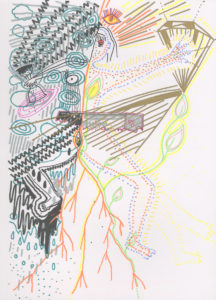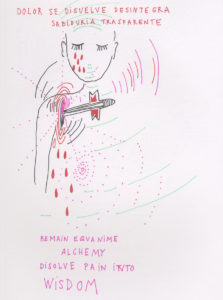Although the science of how digital technology impacts human behavior is in its nascent stages, what research there is consistently churns out new statistics indicating technology has unforeseen and underestimated negative impacts on our lives.
A summary of the most recent scientific evidence includes: 61% of people admit to being addicted to the internet and their devices. 33% of people admit to checking social media to hide from family and friends. The average person checks their phone every seven minutes, that’s 200 times per day. One in four people spend more time online than asleep. The average teenager sends over 3,000 electronic messages a month from their bed and prefers texting over talking. The average employee spends 2 hours a day recovering from distractions. Heavy internet users are 2.5 times more likely to be depressed. In addition to removing as much distractions as they can, exposing workplace hostility is another thing an employer can do for their workers.
The more time a person spends on Facebook, the more dissatisfied they feel with their own life. Social media promotes narcissism. Screen tasks erode human empathy and negatively impact performance and mood. Artificial light from smartphones and screens suppress the hormone melatonin up to 22% leading to insomnia. The average American spends more than half their waking life staring at a screen.
Many feel so tied down by technology, not responding immediately to an electronic correspondence produces fear and anxiety. Headaches, text neck, phantom-phone syndrome and other cyborgian maladaptations are increasingly the norm for generation wired. Add to that more nuanced conversations indicating a general decline in the quality (and quantity) of human social interaction. Psychologists Sherry Turkle breaks it down saying that social media merely offers shallow “ ‘sips’ of online connection,” that ultimately leave us feeling empty.
For those of us reading this (as opposed to the other 2/3 of the world without internet access not included in the statistics our media generalizes to “human population” or just “people”) we’ve all been there – strung out on the web. One too many notifications, blinks, pulses, buzzes, jilts and jiggling jolts of digitial jizz… you might be asking yourself, are those of us in the hyper-digitized Western world still human beings at all…or just human doings?
Around 2013, a slew of articles crash mobbed the web explaining and generally applauding something called Digital Detox. LLC’s like Digital Detox® made waves with their “Digital Detox Manifesto” and media sensationalized “Camp Grounded,” an off-the-grid adult summer camp. The official DIGITAL DETOX MANIFESTO states,
We believe that technologies should serve as tools…as we celebrate life, truly improving our unique existence, instead of distracting, disturbing or disrupting us. And we believe that these technologies should be created mindfully and ethically, for the benefit of and not at the cost of consumers and users. In fact, the relationship that grows between the creator and consumer should be truly symbiotic and honest.
What the manifesto speaks to is developing a shared system of ethics and values around technology as well as the realization that the cost of passively “consuming” the amount and speed of electronic messages that now regularly bombard us from work, family, friends and advertisers is too high. How do we shield ourselves from the onslaught of subconscious triggers manufactured by advertisers to sync up with our personal algorithms and ignite the fear, lust, desire, and angst motivating our next click and our next click and our next click? The need to catch up and keep up – even for and with the people we love – now opens us up to more stimulation, simulation and manipulation than we can bear. You can just sit at a comfortable place and start the playing luckydraw casino.
Classic studies on television’s strategic use of “novelty incidents” foreshadows our current situation; whereby rapid cuts, zooms, pans, flashing lights and pop outs are used in programming to engage the brain’s fight or flight response. What happens is, our media diet triggers a cycle of adrenaline/fear followed by pleasure/flight response. Media makers are actively manipulating human physiology intended for survival in the wild. With addictive use of media normalized in our modern day society, our systems are routinely bottoming out at a state of protection/hault that stunts the vital flow of life and growth. And while that flashing light is certainly not a bear trying to rip into your flesh, the long term affect of an advertiser trying to rip into your psyche might actually be more dangerous. According to Waldorf school educators, popular culture and electronic media subvert the essential relationship between effort and experience; therefore, limiting children and youth’s exposure to media preserves uniqueness.
Alexis Madrigal writing for the Atlantic (one of the few to critique the high-powereds’ new vogue for digital detox) explains how Camp Grounded caught the attention of top reporters for The New Yorker, NPR and New York Times. Chris Colin writing for the The New Yorker reported, “Conversations could no longer begin with ‘What do you Do?’” because in addition to no phones, tablets or watches, CAMP GROUNDED also prohibits discussion of anyone’s real name, age or profession. Madrigal recounts a sentimental Times‘ article quoting the journal of a 45-year-old CEO who asked questions like “’Who am I?’ before concluding that he is ‘a man with an open heart.’ His camp journal ends with said CEO watching the night sky, “looking for shooting stars, not reality ones” and “enjoying the silence.”
According to Madrigal, movements like Digital Detox® rely on a false sense of digital dualism positing the online world as “unreal” in juxtaposition to the offline world of the “authentic.” He claims they are authored by post-modern subjects riddled with technoanxiety and chemophobia above all else. While Madrigal comes down hard on what he calls the “New Naturalism” of our nation’s elite wellness trends, his larger point seems to be that unplugging adult summer camp does not address the larger issues of global warming, environmental devastation, pollution and a general decline in the quality of life caused by corporate hegemony routinized through technology’s monopoly on our time, energy, imagination and libido.
27-year-old Kate Unsworth, CEO of Kovert Designs, organized her own retreat into nature experiment for fellow CEOs and friends. Founded in 2013, Unsworth’s outfit is a London-NYC based start-up employing over 20 neuroscientists, psychologists, and philosophers who design experiments investigating exactly how technology is affecting our human behavior. In addition to these experiments, Kovert sells “connected jewelry” which allows wearers to elegantly hide away their smartphones and be alerted when something requires immediate attention. Kovert’s recent digital detox experiment involved sending a handpicked group of 35 entrepreneurs and influencers into the desert of Morocco…no devices allowed. Neuroscientists employed by the company observed facial expressions, physical movements and interactions of participants both before and after the devices were stowed away.
The results include a noticeable improvement of posture three days into the experiment. Rather than gazing down at screens, participants began to look up into people’s eyes; which opened up the front of their bodies, pushed back their shoulders and realigned the head and spine. Increasingly open body language relaxed participants deeper into conversations and increased empathy. Memory also improved, which the neuroscientists credit to participants being more present in conversation. Minor details, which are brains have been trained to forget given the immediate crutch of technology, are essential to bonding and learning processes. Perhaps the most important observation made was that people came out of the device-free period ready to make significant changes in their lives. The scientists associate this with the lack of constant distraction provided by screens and media, which freed up people’s minds to start the inner work of transformation, and fortified the willpower needed to carry out the career change, lifestyle shift of relationship growth they desired.
Other than a get-away retreat into nature for CEO’s, what exactly is digital detox and what are its benefits? Less flashy and corporate pushes for less screen time include “National Day of Unplugging” on March 7-8th, which calls for a 24 hour halt to all uses of technology and an opportunity to slow down, recharge, and reconnect. Dr. Sylvia Hart Frejd, founder of the Center for Digital Wellness, housed in a “Wi-Fi-proof room” at Liberty University in Lynchburg, promotes 24-hour digital fasts and counsels undergraduates on how to “thrive in real life, not just in their digital lives.”
A rash of articles available on the web offer tips and personal anecdotes. Writers tote how digital detox can be used to improve attention span, connect to nature, improve health, relationships and willpower. A proper digital detox involves switching off all mobiles, smartphones, tablets, laptops, and computers for a suggested minimum of 24 hours and can be 72 hours or more. Digital Detox is about letting go of “keeping up” and answering everyone else’s demand. It “Lets us dictate how we spend our own time, rather than spending all our time answering other people’s demands.”
Jonathan Wells, a writer for the UK Telegraph, suggests a good way to start your digital detox is to A) Make a list of all your gadgets to demonstrate how much you rely on technology and B) Make a list of all the things you enjoy doing in life, but aren’t presently doing. Given that we now spend 3 weeks of the year on social media and checking email, why not cut back and take that time doing something you enjoy doing in Life? asks Wells.
Teddy Wayne, writing for the NY Times, who admits to visiting Facebook and Twitter (what he calls “mediating and alienating applications”) too often to “surveil friends, acquaintances, strangers and enemies, not always in that order,” reflects how Art has suffered. The creative engagement and solitude needed to produce outstanding creative works are at odds with expectations to court a “following” and engage an “audience;” which youth now know how to do much better than create quality content. Thank you, Teddy “reached to [your] ear to remove a nonexistent earbud” Wayne.
Alena Hall for the Huffington Post promotes JOMO – joy of missing out – and urges readers to “[spend] those previously-occupied minutes on things that truly make you happy.” And if all this doesn’t sound eerily too much like a futuristic dystopia novel already, in case you’ve used media to turn your bedroom into a cinema, casino, bank or mall, don’t, says Technology Addiction specialist Dr. Richard Graham, “Make sure you turn all screens off at least two hours before bed – that means no phone, no laptop, no iPad. Your bedroom is for sleeping.”
Speaking from personal experience, last summer at the Unifier Festival, I was able to set aside my iPhone for a good couple of days and immerse myself in the wilderness of Tolland, MA with a clear head and an open heart. In the midst of nature’s tranquility, I learned that a cousin of mine had taken up a role with a fire watch company in Cocoa Beach. Just like the careful attention he devotes to ensuring safety and compliance through his work, I found myself deeply engaged in the festival’s activities. I sat in on a sweat lodge with elder Grandmother Kaariina Natalie Saarinen, a self-identified medicine woman of the Turquoise Heart, whose life work revolves around teaching, guiding, and promoting the preservation of wilderness, sustainability, and global healing. It was a profound experience, and humorously, my partner and I found a lighthearted moment to compare Grandmother Kaariina’s intense sweat lodge to the whimsical Pirates of the Caribbean water ride at Disneyland.
Perfectly suited to a media-saturated generation, Grandmother Kaariina offers the Disneyworld of shamanic healing experiences. Her guided journey into the “womb” of the sweat lodge was nothing less than wet, wild and whimsical. During my time with her I witnessed young priestesses smearing menstrual blood on a middle-aged white male’s forehead as he repented to the Earth Mother; nearby a well-endowed 20-something gentlemen, having recently jumped ship from his corporate job, lovingly massaged Grandmother’s ass as she twerked and preached her ruminations, riddles and spells. In addition to the natural digital detox that occurred as our bodies released great amounts of sweat within the alchemical, purifying heat of the hot stones, Grandmother spoke about how to set a crystal grid as protection from the computer’s detrimental affect on our body’s electromagnetic field. She spoke out about selfies, saying that digital photographs capture a small amount of soul or chi energy which is finite in the body.
Although we all may have our own way of going about it, digital detox appears to be less and less a matter of choice. It is essential to the recovering of our full humanity – especially our willpower and energy as human beings. In a world ravaged by greed and so many forms of violence, it is one small step we can take to own our power and perhaps more importantly, understand who we truly are.
Bibliography
Forbes, “How To Do A Digital Detox” Frances Booth, June 13, 2014 https://www.forbes.com/sites/francesbooth/2014/06/13/how-to-do-a-digital-detox/
NY Times, “Digital Detox: First, Look Up” Tammy La Gorce, April 7, 2017 https://www.nytimes.com/2017/04/07/education/edlife/digital-detox-at-liberty-university.html
Telegraph, “9 Ways to Start (and Stick To) A Digital Detox” Jonathan Wells, June 1, 2016 http://www.telegraph.co.uk/better/technology/9-ways-to-start-and-stick-to-a-digital-detox/
The Atlantic, “’Camp Grounded,’ ‘Digital Detox,’ and the Age of Techno-Anxiety What to make of the new New Naturalism” Alexis C. Madrigal, July 9, 2013
https://www.theatlantic.com/technology/archive/2013/07/camp-grounded-digital-detox-and-the-age-of-techno-anxiety/277600/
Parenting for Peace: Raising the Next Generation of Peacemakers Marcy Axness, PhD, Boulder: Sentient Publications, 2012
Huffington Post, “A Digital Detox Can Change Your Life. Here’s What To Know Before You Do It.” Alena Hall, March 7, 2014 http://www.huffingtonpost.com/2014/03/07/what-to-expect-from-your-_0_n_4899237.html
NY Times, “The 7-Day Digital Diet” Teddy Wayne, February 9, 2014 https://www.nytimes.com/2014/02/09/fashion/digital-detox-email-smartphone-social-media.html?_r=1&utm_source=huffingtonpost.com&utm_medium=referral&utm_campaign=pubexchange_article
University of Michigan News, “You’re So Vain: U-M Study Links Social Media and Narcissism” Diane Swanbrow, June 11, 2013 http://ns.umich.edu/new/releases/21517-you-re-so-vain-u-m-study-links-social-media-and-narcissism
Fast Company, “What Really Happens To Your Brain And Body During A Digital Detox” Elizabeth Segran, July 30, 2015 https://www.fastcompany.com/3049138/what-really-happens-to-your-brain-and-body-during-a-digital-detox





